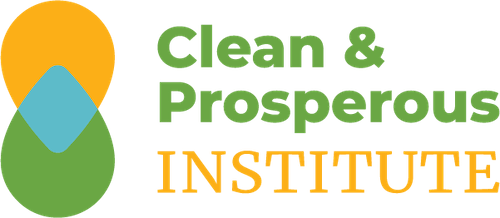On the final day of our study mission, we toured the Climeworks Mammoth facility in Iceland, which is the largest direct air capture site in the world.
Director Air Capture – or DAC – is a process by which carbon dioxide is removed directly from the atmosphere and is (usually) stored in some capacity. DAC – particularly in the United States – is a nascent industry, and we’re still determining the role it will play in mitigating the impacts of climate change.

Study Mission delegates tour the Climeworks Mammoth facility in Iceland
A recent study by the Committee on Industry, Research, and Energy with the European Parliament found that there is a strategic role for DAC in meeting climate goals, but it must be paired with a continued commitment to ambitious emissions reductions through electrification. Additionally, the Kleinman Center for Energy Policy recently released a policy and decision-making rubric to help lawmakers, businesses, and communities determine how to deploy carbon capture technology like DAC effectively and sustainably.
We also know that advanced technologies like carbon capture and storage require initial investment from the public sector to test, streamline, and eventually scale products so they can become profitable and sustainable. The EU Innovation Fund – or recently canceled federal Department of Energy grants – are vital to allowing cutting-edge climate science the opportunity to grow.

New NIH Research Furthers the Connection Between Climate and Health
A new study from the NIH National Cancer Institute underscores even more starkly what we already know to be true: The intersection of climate change and public health is undeniable, and the impacts are increasingly alarming.
From the study: “[The researchers] They found that the [lung cancer] tumors of patients in highly polluted areas had many more genetic mutations than those in areas with cleaner air, and exhibited a diversity of mutations, including patterns typically found in smokers.”

It’s more clear than ever: Reducing air pollution is an urgent necessity for our community-wide health and wellbeing. Washington state continues to address the nexus of climate change and public health through programs like the Climate Commitment Act-funded Air Quality in Overburdened Communities Grants, which improve air quality in Washington communities that are historically overburdened by health and climate inequities AND are highly impacted by air pollution.
Read more in Inside Climate News.
Follow CPI on Social Media
Follow Clean & Prosperous Institute on social media to learn more about our work to transition to a clean energy economy. You can find us on these channels:
- LinkedIn: @clean-prosperous-institute
- Instagram: @cleanprosperousinstitute
- Bluesky: @cleanandprosperous.bsky.social
